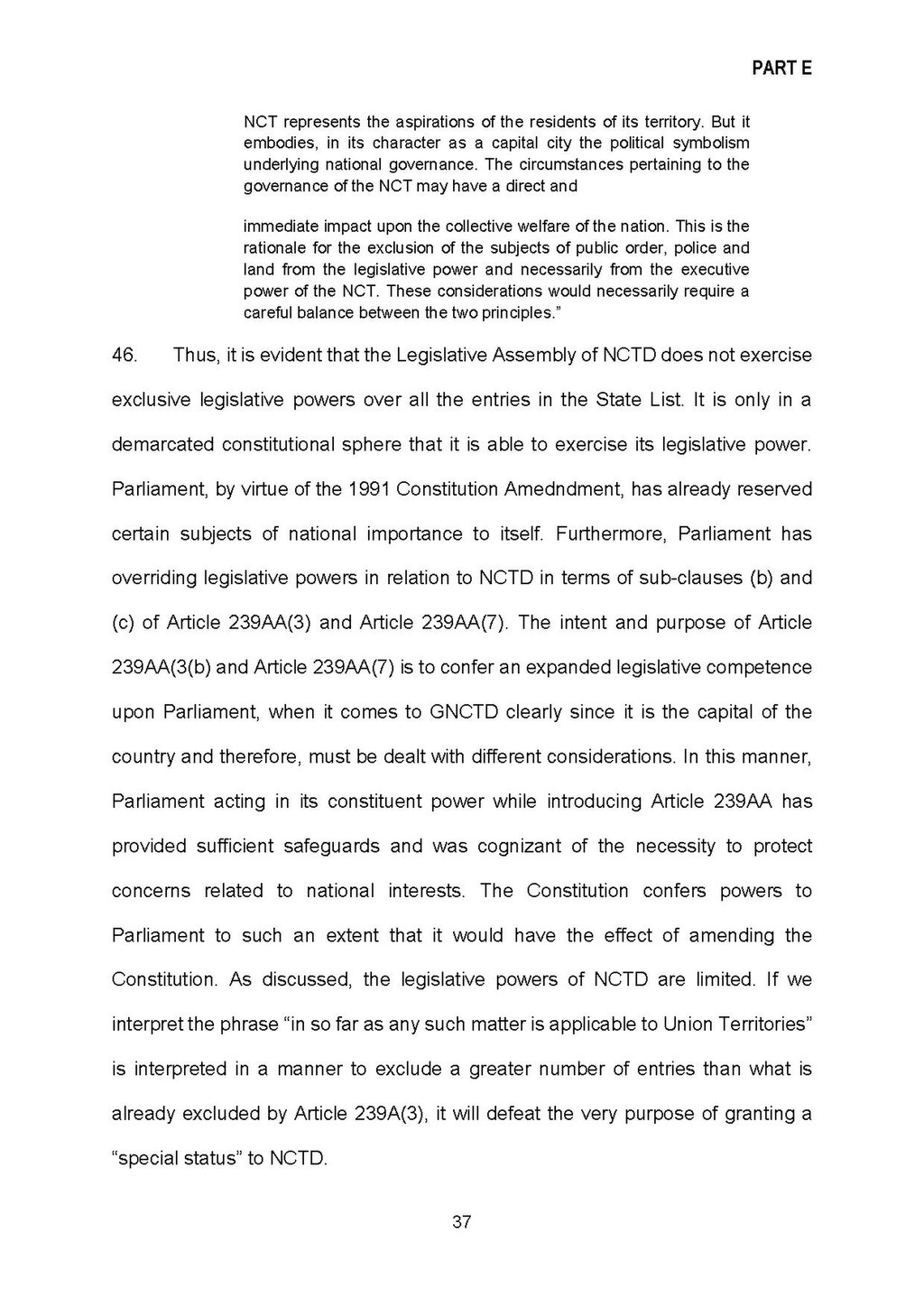NCT represents the aspirations of the residents of its territory. But it embodies, in its character as a capital city the political symbolism underlying national governance. The circumstances pertaining to the governance of the NCT may have a direct and
immediate impact upon the collective welfare of the nation. This is the rationale for the exclusion of the subjects of public order, police and land from the legislative power and necessarily from the executive power of the NCT. These considerations would necessarily require a careful balance between the two principles.”
46. Thus, it is evident that the Legislative Assembly of NCTD does not exercise exclusive legislative powers over all the entries in the State List. It is only in a demarcated constitutional sphere that it is able to exercise its legislative power. Parliament, by virtue of the 1991 Constitution Amedndment, has already reserved certain subjects of national importance to itself. Furthermore, Parliament has overriding legislative powers in relation to NCTD in terms of sub-clauses (b) and (c) of Article 239AA(3) and Article 239AA(7). The intent and purpose of Article 239AA(3(b) and Article 239AA(7) is to confer an expanded legislative competence upon Parliament, when it comes to GNCTD clearly since it is the capital of the country and therefore, must be dealt with different considerations. In this manner, Parliament acting in its constituent power while introducing Article 239AA has provided sufficient safeguards and was cognizant of the necessity to protect concerns related to national interests. The Constitution confers powers to Parliament to such an extent that it would have the effect of amending the Constitution. As discussed, the legislative powers of NCTD are limited. If we interpret the phrase “in so far as any such matter is applicable to Union Territories” is interpreted in a manner to exclude a greater number of entries than what is already excluded by Article 239A(3), it will defeat the very purpose of granting a “special status” to NCTD.
37
